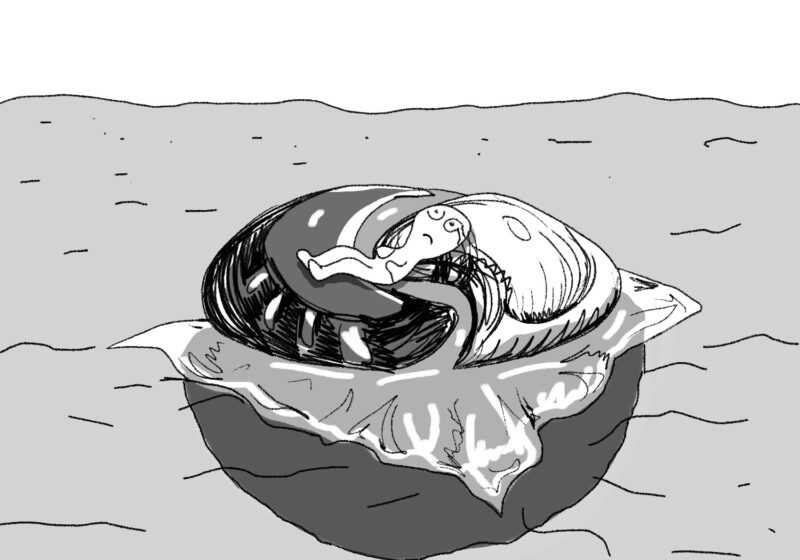Last week, the University’s Sustainability Task Force released a report, which concluded that the University, though it has taken some steps toward decreasing its negative environmental impact, can do much to improve.
“Despite an impressive list of individual initiatives, the task force observes that the University’s efforts have not been as systematic and as well communicated as programs at other institutions,” the report said. “The task force is unanimous in its belief in the need for the University to move forward boldly and more systematically to address issues of environmental sustainability.”
The Task Force, run by Senior Vice President for Administration and Finance Ronald Paprocki, was formed last spring at the recommendation of UR President Joel Seligman. The Task Force’s purpose was to assess the University’s current levels of environmental sustainability, identify principles to guide sustainable growth at the University and make recommendations for actions to take on the infrastructure level, all of which it included in the report.
The guiding principles for sustainable growth at the University that the report presented included reducing the environmental impact of future development, decreasing the amount of non-renewable energy that the University consumes, reducing solid waste and increasing recycling.
Additionally, the Task Force divided itself into subgroups that investigated six areas of sustainability: energy, development and construction, waste management and recycling, dining, transportation and parking and communication. These subgroups suggested 25 initiatives to incorporate various aspects of University operations, which will be reviewed and ultimately presented at the Board of Trustees meeting in March.
“This is a perfect time for this initiative to come forth given where the various schools are in developing their strategic plans for the next five years,” Paprocki said.
According to Paprocki, some of the initiatives, such as those in energy savings and increasing the use of local food, have already been implemented because they did not have a significant impact on finances.
Currently, the University’s academic buildings do not rate very well for environmental sustainability because of their age, according to University Architect Paul Tankel.
Some steps have been taken, such as replacing old windows, and more will be taken during building renovations. Many of the buildings, even those built within the last decade, did not incorporate energy efficiency because lower utility costs did not encourage it.
“What the administration has recognized is that you either pay up front to provide and perform energy conservation measures or you pay in energy bills,” Tankel said.
Goergen Hall, completed this year, was the first University building to incorporate significant sustainable design features. The building’s runoff water is diverted to a bioretention pond that filters the water through an aquifer before it goes into the river, it uses natural lighting and its interior doors are made of renewable bamboo.
During Goergen’s construction, 80 percent of construction waste was diverted from landfills. The University even had a net gain in green space from the project. Still, Tankel said that there is room to improve.
“It’s not top notch, as far a sustainable building, but it’s a great place to start,” Tankel said. “It has gotten us to realize that we can do better.”
Gleason Library uses sustainable paint, carpet and furniture, and the renovations in Towers next year will also incorporate sustainable design and materials.
As part of future construction projects and University operations, the University will incorporate sustainable design.
Tankel emphasized that students need to involve themselves in the process, since student reports two summers ago had a significant impact on bringing the University to where it is now.
“This hasn’t been high on the radar screen for a large number of students,” he said. “If students want to be involved in this they need to come forward and be vocal.”
Co-president of Grassroots and junior Lee Reis was pleased with the report because it signified that the University wants to become more green.
“I think it’s great that the University has made a vocal effort to commit to sustainability,” Reis said.
The University’s hiring of a recycling coordinator and pledge to increasing the material it recycles also resonated with Reis because students and student groups, such as Grassroots, had suggested those solutions to University officials.
It bothered Reis, though, that the report cited RecycleMania and Dump & Run – student-run programs – but did not give credit to students.
“It’s somewhat disappointing to see the fact that students were the driving force in some of these initiatives but are not acknowledged,” he said.
The Task Force report’s recommendations, which represent the University’s first major steps toward a more environmentally aware campus, signifies that the administration recognizes the environmental, as well as economic benefits, that going green can bring.
On Nov. 16, Seligman formed the University Council on Environmental Sustainability. With the council he hopes to develop a proposed University-wide vision for sustainability, review specific initiatives with regard to the environment and endorse or modify the proposed Environmental Sustainability Principles.
“It is very hard to imagine an issue which will have more sustained significance to the planet than the cluster of issues related to energy sustainability,” Seligman said.
Fleming is a member of the class of 2010.


